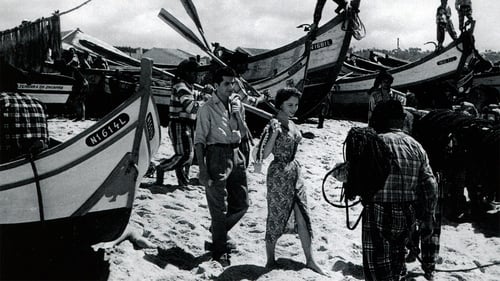Amália Rodrigues
Nacimiento : 1920-07-23, Lisbon, Portugal
Muerte : 1999-10-06
Historia
Amália, was a Portuguese fadista (fado singer) and actress. Known as the 'Rainha do Fado' ("Queen of Fado"), Rodrigues was instrumental in popularising fado worldwide and travelled internationally throughout her career. Amália remains the best-selling Portuguese artist in history.

Self (archive footage)
A portrait of Amália by herself. Her personality, experiences, daring, songs, joys and sorrows and a journey that took her all over the world, are told here through moments when Amália crossed with the history of radio and television and public.

Self - Singer
Documentary about the life of Portuguese Fado singer Amalia Rodrigues (1920-1999) with an interview and collection of footage from performances throughout her long career.

Self
A look at the life and career of Vasco Santana, one of the most beloved actors of the Portuguese cinema.

Self
A five hour documentary series about the legendary "queen" of fado.

Hunila
A French sailor circa 1850, disembarks in a desert Atlantic island, and discovers a woman who had survived for many years her father and brother, dead while searching for mysterious valuables. The young couple discover paradise, and its end.

Maria do Amparo
A Marialist nobleman falls in love with a fado singer, who puts an end to the ephemeral relationship, accepting the love of a teenager, recently arrived from Africa.

Film clips of songs by performers from around the world.

Fecha de estreno inicial: 17 de julio de 1958
Director: Tito Davison
Productor: Alfonso Patiño Gómez
Reparto: Édith Piaf, Agustín Lara, Altia Michel

Maria da Graça
Eduardo, the son of the wealthy farmer Jerónimo de Vinhais, falls in love and departs for Lisbon with the fado singer Maria da Graça, after studying abroad, and refusing his father "too" to be a taurenic knight.

Amália Rodrigues
Jackie Lane sightsees in Portugal.

Amália
Dos exiliados franceses en Lisboa se enamoran tras haber matado él a su mujer y ella a su marido.

Eugênia Câmara
The agitated and tragic life of poet Castro Alves, and his romance with actress Eugênia Câmara.

Ana Maria
Ana Maria loves a modest guitar player, Júlio; when she herself in a 'retiro' (typical fado tavern), public and critics rend major applause. Fame brings about new friends, namely bohemian young who play and sing the fado with her, and not so young men but who rich and powerful enough to patronize her, promote her, and wish to become intimate with her. Júlio the guitarist feel betrayed, and he sets his mind to depart to the African colonies, to leave her forever. Knowing that he's going to embark, Ana Maria's heart between her first love, and the appeal of the rich and famous.

Maria de Lisboa
The great fadista, Amelia Rodrigues, made her screen debut in Capas Negras, which took its name from the black capes worn by the students in the university city of Coimbra, where the film is set. The action begins in a tavern where a group of former students are reminiscing about their time at the university. One of the students, Jose Duarte then breaks into song, performing an impromptu fado in the local Coimbra style. The tavern owner's niece, the aptly named Maria Lisboa promptly retaliates with a fado of the Lisbon variety. The melodramatic plot then centers on the frustrated romance between these two characters, and the soundtrack is essentially a musical duel between these two different styles of Portugal's national song.





